By making Valwood School part of your legacy, you ensure that future generations of students will be prepared for college and beyond!
One of the most transformational ways to support the students and teachers at Valwood School is through making a planned gift. As a planned gift donor, you can experience tax savings, increased income, and providing for your heirs, all while benefiting Valwood.
Planned giving includes a variety of philanthropic strategies that will allow you to donate assets to support the school, yet defer the time that the gifts are received. In many cases, a planned gift enables you to make a significantly greater contribution than would be possible through an outright gift. The best gift plans require careful thought and analysis of income, estate and tax consequences, and we strongly recommend you consult with your attorney or tax advisor to determine the best way to include Valwood in your will or estate planning.
Below are planned giving options. To discuss a planned gift in more detail, please contact Susanna Harris, Director of Development or give her a call at 229-242-8491.
A bequest allows donors to plan for and make a substantial gift to Valwood School, often many times their capacity during their lifetime. When including Valwood in your will, please be sure to provide appropriately for spouse and children first.
To make a bequest for Valwood, you may include the following language in your will:
Donor owns a large policy or several policies, not all of which is needed to fund estate requirements. Make a gift of the policy and allow Valwood School to choose cash value or death benefit, or designate Valwood as the beneficiary.
Donor owns appreciated assets. The assets are low growth, low dividend, or both. Donor does not wish to pay capital gains tax, but would like to create more current income from assets. A gift to a CRT or CGA avoids capital gains taxes and estate taxes, provides income to designated beneficiaries, and the remainder to Valwood School.
Donor owns substantial assets, and would like to pass them to the next generation at low tax cost. A charitable lead trust pays income to Valwood for a period of years, then the remainder to family members. By paying to a charity, a much lower imputed value is passed to the family members, avoiding tax on the marginal difference in value. Not for the faint of heart, since the assets pass from control of both the donor and the other family members for the period of payment to the charities.
A great item to own during one’s life, but not ideal to try and pass to family members. The IRA Charitable Rollover provision allows living individuals who have reached age 70½ to donate up to $100,000 to Valwood directly from their Individual Retirement Account (IRA), without treating the distribution as taxable income. However, an entire IRA can be transferred to Valwood after a donor’s passing thereby avoiding significant tax loss for the family.
Real estate can be a difficult item to resolve within an estate, or by family members after it leaves the estate. A gift to Valwood avoids estate, gift and capital gains taxes, and provides an income tax deduction. If some cash is needed, then a bargain sale can be used to provide cash in part, and a gift in part.
Many donors accrue substantial assets in collections of artwork, antiques, or other personal property. Gifts of personal property can provide tax deductions while not substantially reducing the value of an estate.